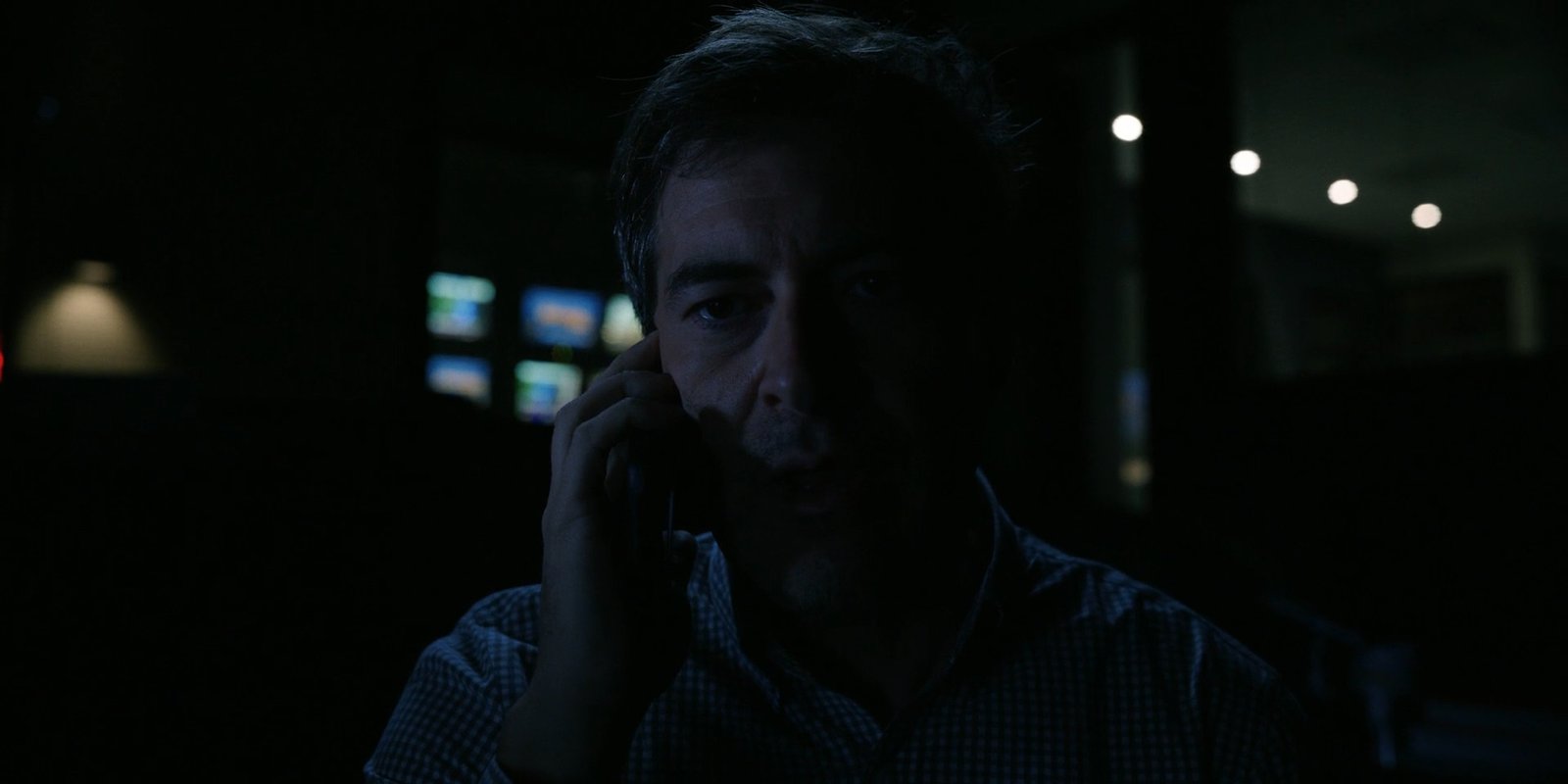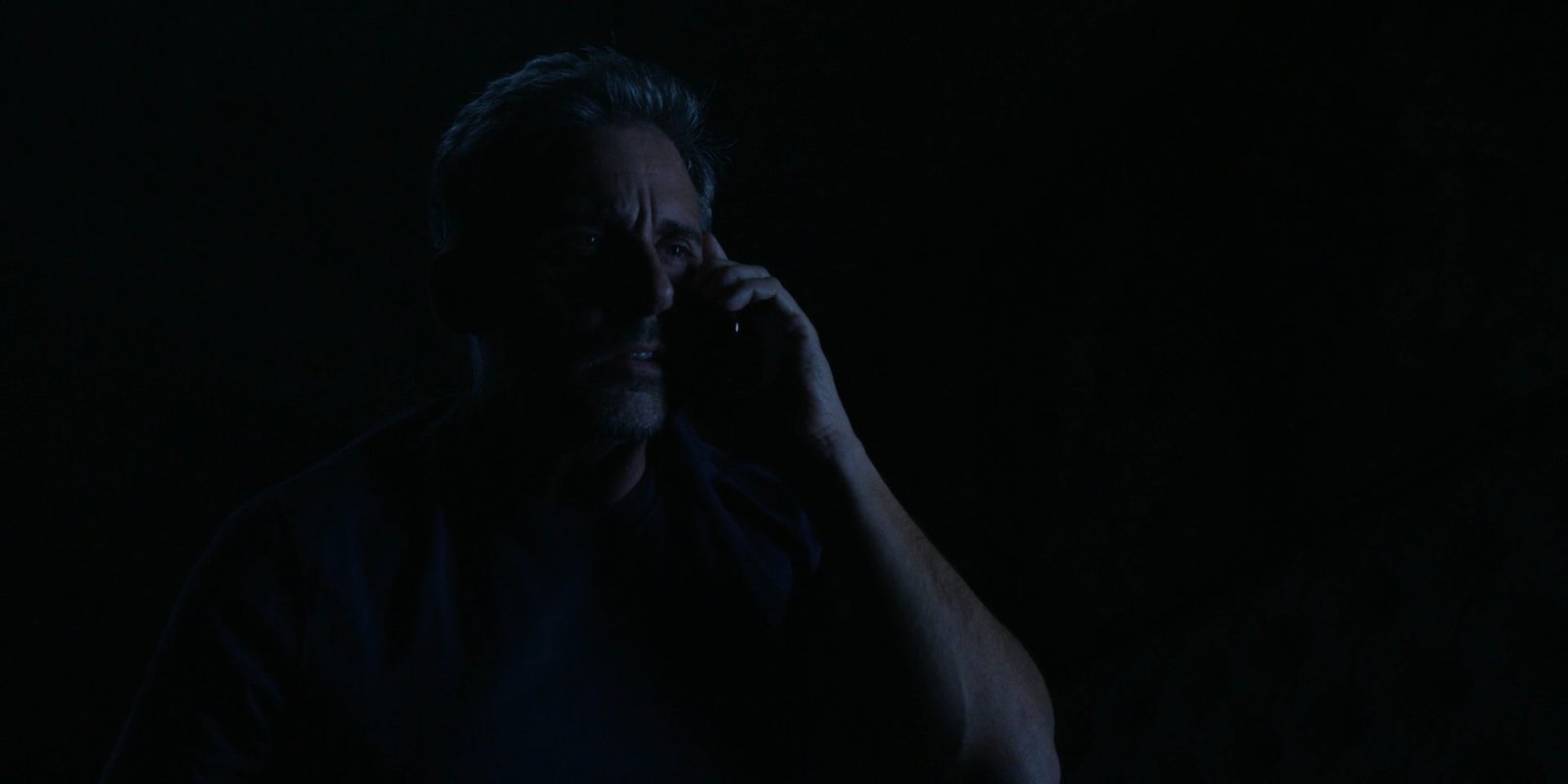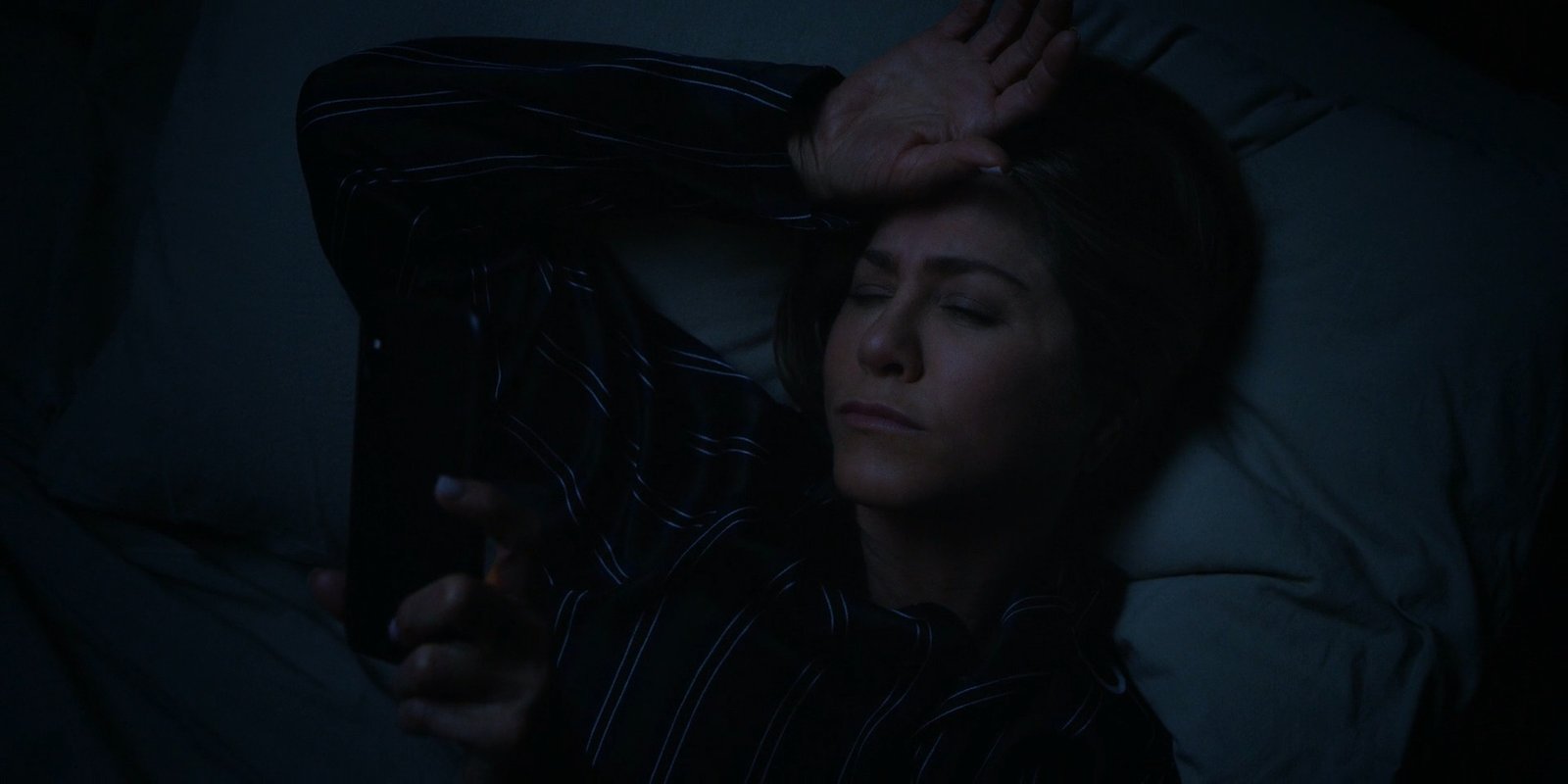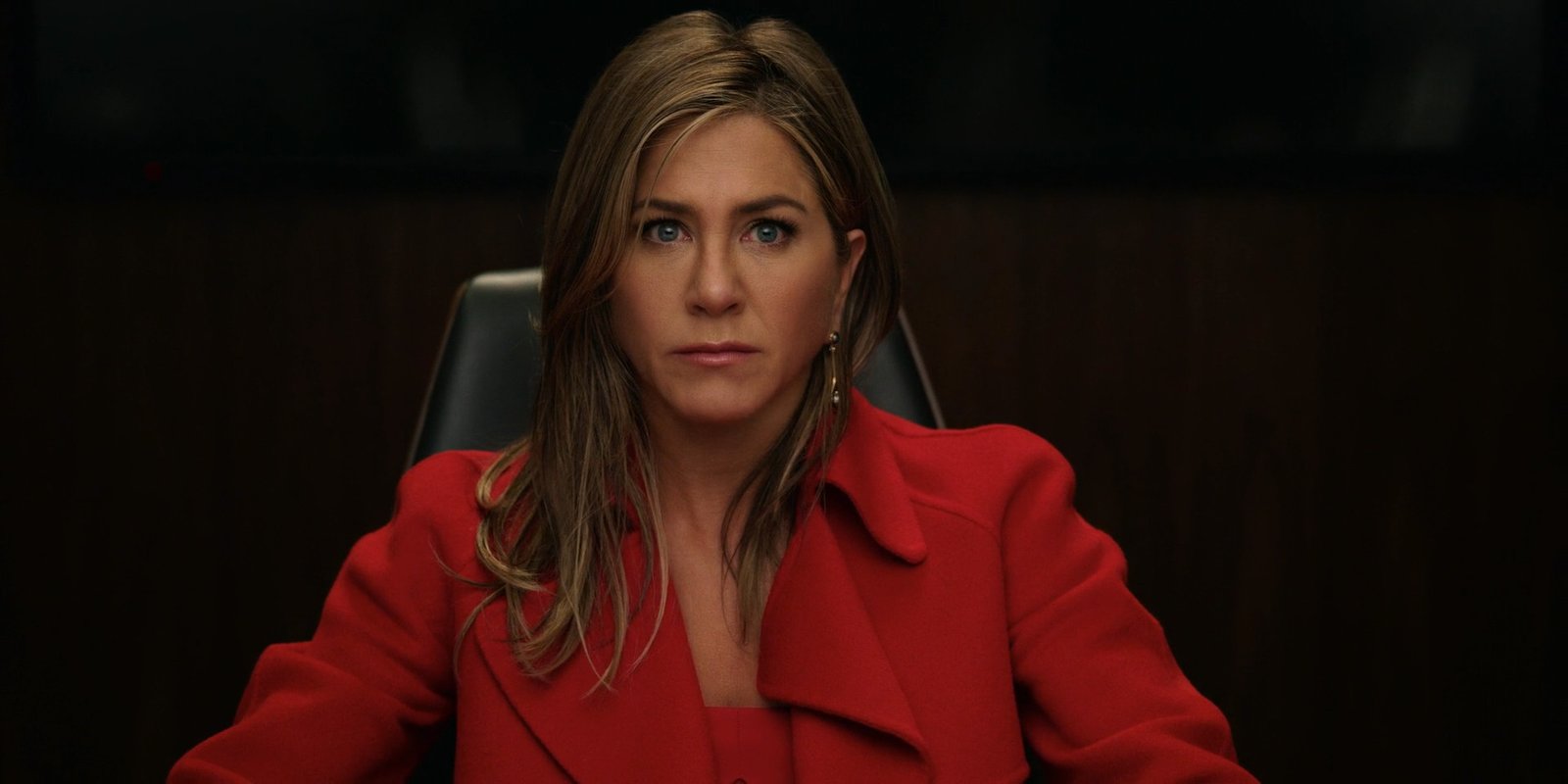In the Dark Night of the Soul It's Always 3:30 in the Morning

The first episode of The Morning Show takes its name from an unsung F. Scott Fitzgerald essay,
In a real dark night of the soul it is always three o’clock in the morning, day after day.
Which in turn is a reference to a 16th-century Spanish poem and accompanying treatise (Noche Oscura) by St. John of the Cross, which I’ll abridge by cherry picking a few lines,
On a dark night,
[…] I went forth without being observed,
My house being now at rest.
In darkness and in concealment,
[…] This light guided me
More surely than the light of noonday
The absent “day after day” is restored implicitly in the rinse & repeat of each day of The Morning Show, but that can wait because I only want to talk about the first five minutes of this first episode.
Fitzgerald’s Three o’clock becomes 3:30 in the show, but this distortion proves an improvement. At 2.58am we find Charlie Black laying in the Dark Night of the Studio, breathing heavily. Out of the gloom all around him, another character emerges, glowing brightly and intruding on his lonely panic. The telephone. No longer a mere technological or narrative device, the telephone is elevated to a complete character. Three phones ring within 90 on-screen seconds: Fred rings Charlie; Charlie rings Mitch; Charlie rings Alex.



Of the first two calls we only hear the dialogue from the receiving end, we’re thrown into the middle of a game of telephone.
Charlie is first, as he picks up he mutters “Oh God” before asking “Fred, what happened?” Fred is unseen, but we can see he has power over Charlie who waits for him, answers his calls from the dark at 2.58am. Fred, we imagine, is a kind of Devil. But Charlie works in the shadows too. He is awake, eyes wide open — he has seen this coming — anxious but not surprised by what Fred says, so we imagine Charlie is not quite innocent either.
Mitch is asleep so we suspect he has been complacent, he answers with “Someone better be dead, buddy”1, his mute shock confirms his complacency and raises the question: is it his death the telephone has delivered?
Alex doesn’t answer, there’s a rift there, there’s a story here.
Three missed calls become four, text messages to Alex and her assistant, she arrives at the studio to find Charlie waiting for her outside, urgent, tense.
Exasperated, she delivers her first line of dialogue, the last of the six lines that make up the first five minutes of the show, and the first to be delivered face-to-face, bored and sarcastic,
“Oh my God. Who died?”
All told, those first five minutes sum to,
Charlie
”Oh God. Fred, what happened?”
“So, that’s it?”
“Motherfuck, we’re destroyed.”
“No, I’ll tell him.”
Mitch
“Someone better be dead, buddy.”
Alex
“Oh my God. Who died?”
And we haven’t yet heard both sides of any conversation. We find ourselves in a story where people are likely to be forever talking past, misunderstanding, and mistrusting one another.
Fitzgerald’s The Crack-Up begins,
Of course all life is a process of breaking down, but the blows that do the dramatic side of the work—the big sudden blows that come, or seem to come, from outside—the ones you remember and blame things on and, in moments of weakness, tell your friends about, don’t show their effect all at once. There is another sort of blow that comes from within—that you don’t feel until it’s too late to do anything about it, until you realize with finality that in some regard you will never be as good a man again. The first sort of breakage seems to happen quick—the second kind happens almost without your knowing it but is realized suddenly indeed.
These first five minutes deliver both “the big sudden blow” and the “blow that comes from within—that you don’t feel until it’s too late to do anything about it”.
That each character will be guided by the ‘light’ of greed in the dark, “More surely than the light of noonday”, has not yet revealed itself, not in these five minutes, but even if the rest of the show falls flat, the first five minutes of The Morning Show charmed me a line at a time. We have to keep being pulled into a story in order for it to do anything to us.

Now the standard cure for one who is sunk is to consider those in actual destitution or physical suffering—this is an all-weather beatitude for gloom in general and fairly salutory day-time advice for everyone. But at three o’clock in the morning, a forgotten package has the same tragic importance as a death sentence, and the cure doesn’t work— and in a real dark night of the soul it is always three o’clock in the morning, day after day. At that hour the tendency is to refuse to face things as long as possible by retiring into an infantile dream—but one is continually startled out of this by various contacts with the world. One meets these occasions as quickly and carelessly as possible and retires once more back into the dream, hoping that things will adjust themselves by some great material or spiritual bonanza. But as the withdrawal persists there is less and less chance of the bonanza—one is not waiting for the fade-out of a single sorrow, but rather being an unwilling witness of an execution, the disintegration of one’s own personality…
-
And when Mitch later styles himself as a martyr and a messiah, and attempts to resurrect himself, we can see him fully as the false prophet.↩︎